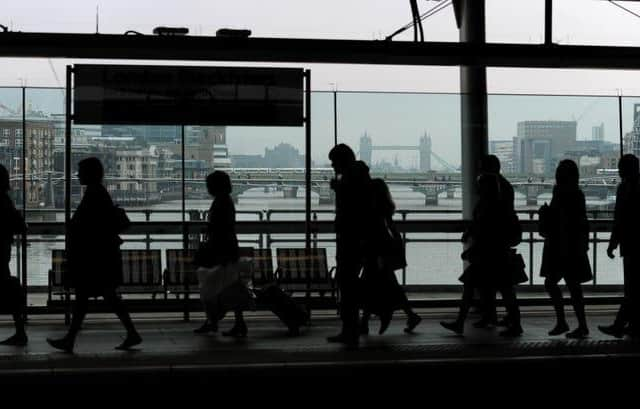Employment in Mansfield and Ashfield above pre-pandemic levels
and live on Freeview channel 276
However, it comes as official figures show employees across the UK have seen the steepest fall in real wages for more than seven years, after earnings failed to keep up with price hikes.
Office for National Statistics figures show 49,713 people in Mansfield were on company payrolls in February.
Advertisement
Hide AdAdvertisement
Hide AdThis was up from 48,802 in February 2020, before the pandemic, and 2,020 more than in the same month last year, when 47,693 people were on payrolls.


In Ashfield, 56,065 people were on company payrolls in February, up from 55,557 in February 2020 and 2,156 more than February 2021.
The number of workers on UK payrolls increased by 275,000 month-on-month, to 29.7 million.
Different ONS figures show average earnings, excluding bonuses, rose by 3.8 per cent in the three months to January.
Advertisement
Hide AdAdvertisement
Hide AdBut they failed to keep up with price increases due to record inflation that month, meaning they fell by 1 per cent in real terms – the steepest decline seen since July 2014.
In April, bills are expected to rise by more than 50 per cent for the average household when the energy price cap rises.
Strong position
Chancellor Rishi Sunak said the labour market is in a strong position.
Mr Sunak said: "Thanks to the unprecedented economic support we've provided, we’ve now seen a year of falling unemployment and a stronger jobs market bounce back than so many predicted.
Advertisement
Hide AdAdvertisement
Hide Ad“I am confident our labour market is in a good position to deal with the current global challenges, with payrolled employee numbers above pre-pandemic levels in every nation and region and redundancies at record lows.”
However, the Government has faced criticism over the level of support it has offered.
Frances O'Grady, Trades Union Congress general secretary, said working people deserve financial security and a wage they can live on.
She said: “The Government must use the spring statement to act.
Advertisement
Hide AdAdvertisement
Hide Ad“We need a plan to get wages rising in all jobs, a boost to Universal Credit, and a windfall tax on oil and gas profits – with the money raised going to energy grants for hard-pressed families.”
While rising costs have seen real wages fall, the UK unemployment rate reached its lowest point since before the pandemic, falling to 3.9 per cent in the three months to January.
In the East Midlands, the unemployment rate was 3.1 per cent, up from 0.8 per cent in the same period last year.
Separate figures show vacancies increased nationally by 105,000, to 1.3m in the three months to February.
Advertisement
Hide AdAdvertisement
Hide AdDanni Hewson, financial analyst at stockbroker AJ Bell, said the strong labour market does not help arrest the cost-of-living crisis.
She said: “It doesn’t matter that a record number of people are now on UK payrolls or that there is still a record number of job vacancies, people in work are feeling the pinch and it’s going to get worse.
“It’s not because wages aren’t rising – how could they not in such a tight labour market – it’s just that the cost of simply living is getting more and more expensive.”
